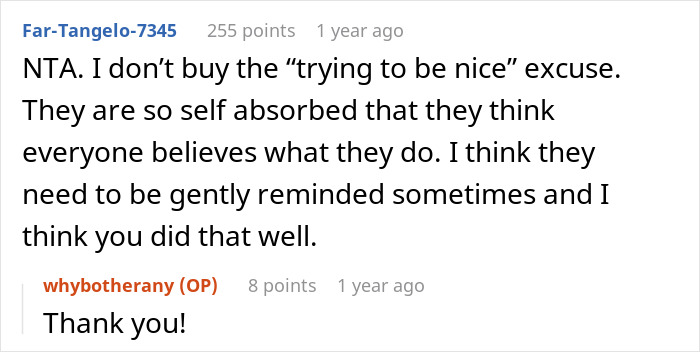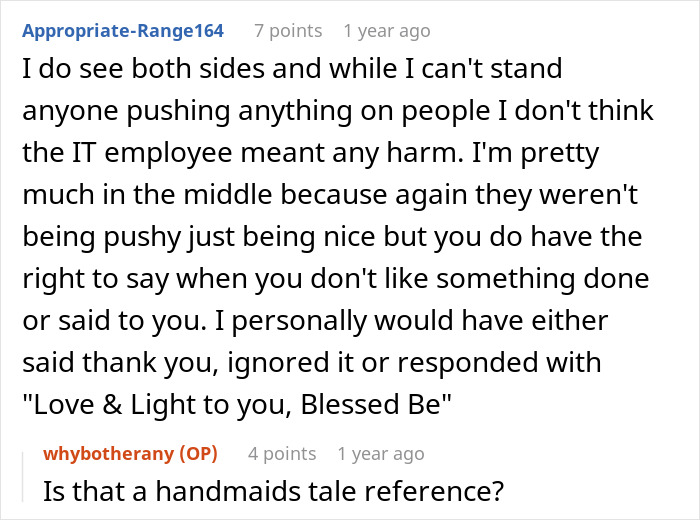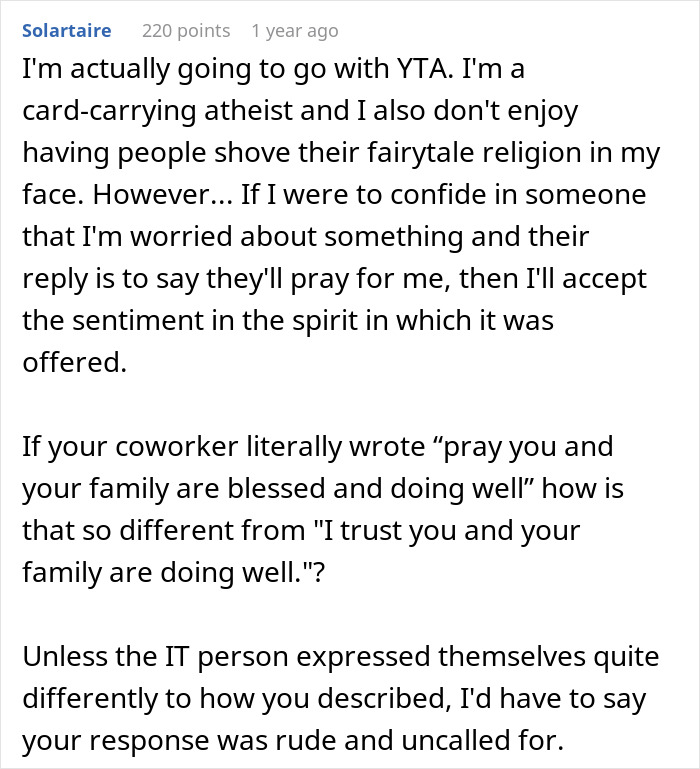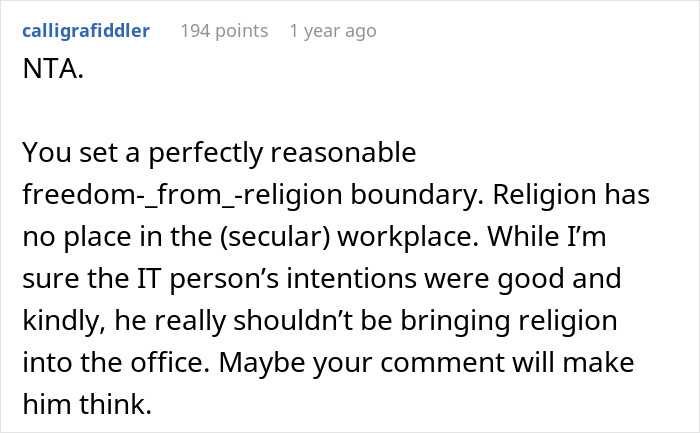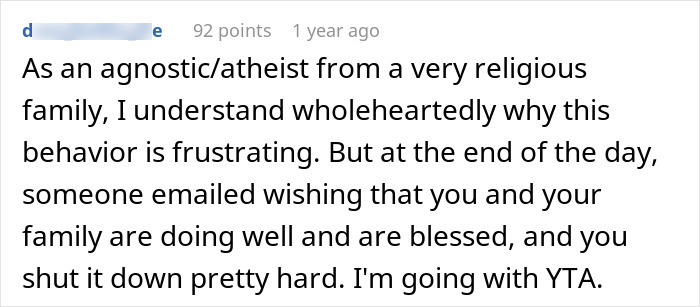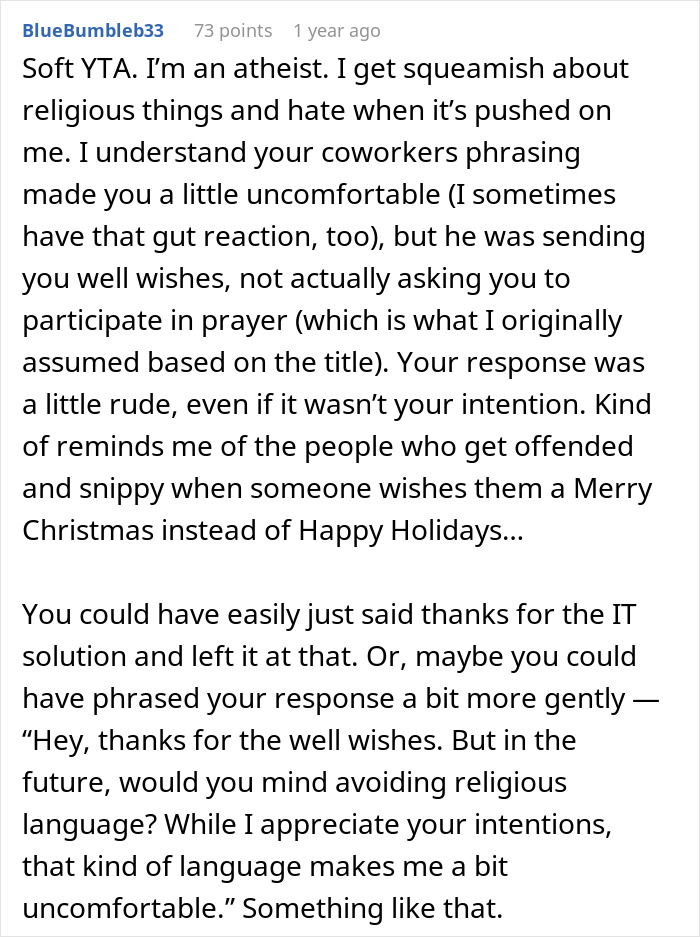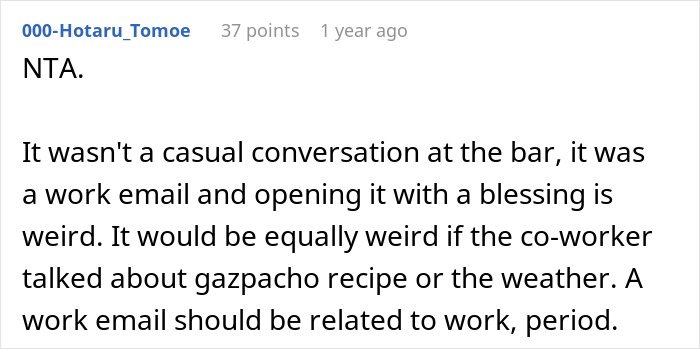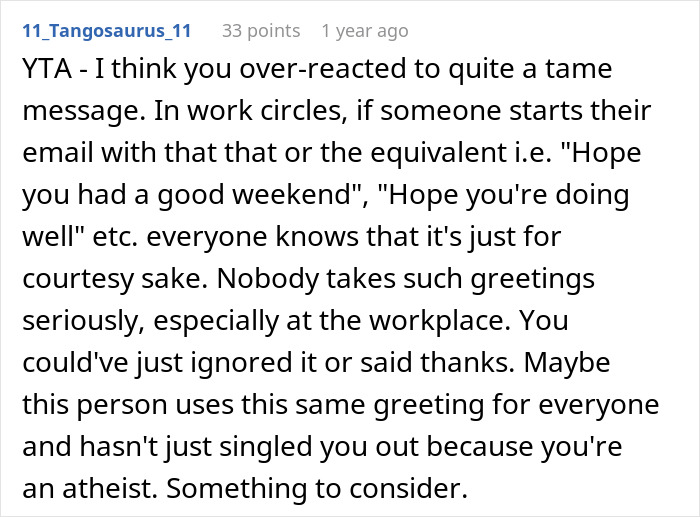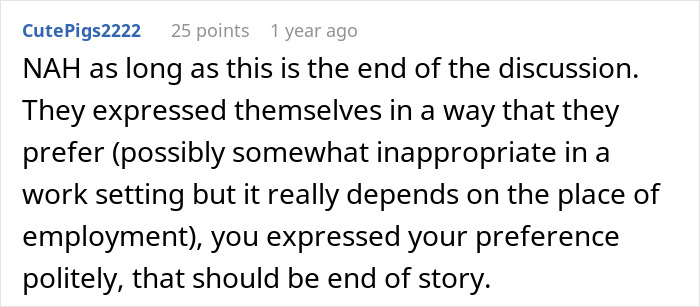Whatever we believe in, it is our choice. However, while it is completely fine to talk about those things, pushing them too much can quickly get annoying.
As one Redditor shared, the workplace is precisely where personal beliefs should be kept to yourself. When one atheist woman asked an IT worker a simple question and received an answer starting with prayers and blessings, she was quick to tell them she didn’t want that. Still, that made her wonder if that was the right thing to do. Scroll down to read the full story!
More info: Reddit
Religion and work can coexist, but it’s important to know the boundaries and take care not to overstep them

Image credits: Vlada Karpovich (not the actual photo)
A Jewish/atheist woman who previously had a lot of experience with people pushing their religion on her worked in a big corporation
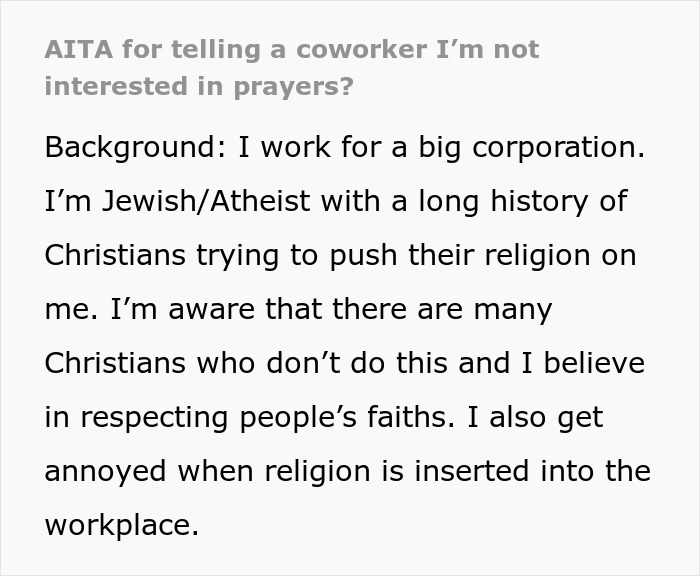



Image credits: Ivan Samkov (not the actual photo)
She needed help from her IT colleague, so she sent them an email with a question, to which their reply started with unrelated prayers and blessings
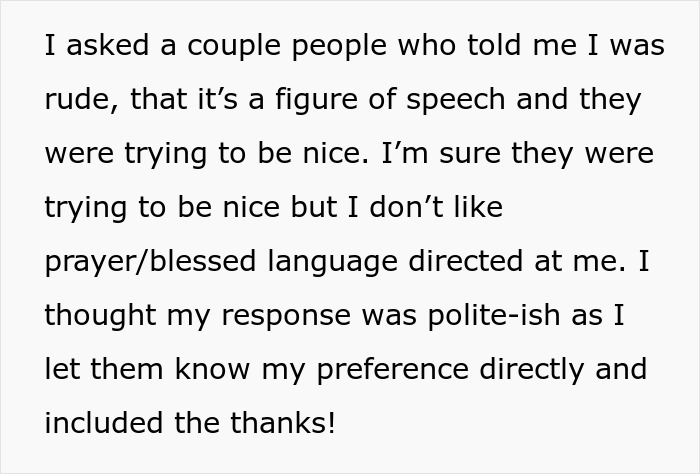

Image credits: u/whybotherany
The woman thanked her for the solution, adding that she’s not interested in prayers, which some of her colleagues found to be rude
The story took place roughly 2 years ago. The OP, a Jewish/atheist woman who has dealt with a lot of Christians pushing their religion on her, was working for a big corporation.
Naturally, in a big company, there were a lot of different people with various views. The poster explained that she did respect other people’s faiths and knew not all Christians were like this, but having religion inserted into her workplace really annoyed her.
One day, she contacted IT to seek help with a problem that she’d been dealing with. The IT person came back to her with an answer but not before beginning the email with prayers and blessings for the OP’s family. The OP wasn’t too excited about this and replied that she was not interested in prayers, thanking the person for the solution they provided.
The woman didn’t think much of it, but when she later talked to a few other people, they all told her she was rude. She, on the other hand, argued that her answer was quite polite, and she only let the other person know of her preference while also thanking them for their help.
Most of the commenters jointly agreed that the woman was not a jerk in this situation, and while the argument that the other person was just being nice was probably correct, they pointed out that when non-believers do something similar, the reception is usually rather different. Still, some did think that the woman was wrong in what she did, explaining that she overreacted and could’ve handled it in a much nicer manner.

Image credits: Pixabay (not the actual photo)
Since the story happened a good while ago, we were curious about how things turned out. Looking for those answers, Bored Panda reached out to the author of the story, u/whybotherany, who was quite surprised by the sudden interest.
As time passed, the poster left the company she worked at without encountering the IT worker ever again. “She never emailed me back, and I never heard about it. I did receive a message on Reddit from someone else who worked for my company who recognized the woman and had a similar reaction.”
The OP told us that she came to Reddit looking for an external opinion after a discussion she had with her friends, who were sure that her actions were rude, as she wasn’t exactly sure whether she was right or wrong.
In addition, the author thought that since so many AITA posts have quite an obvious answer, her story might come with a more interesting dilemma. “I thought I had an ambiguous situation to share, which could generate an interesting discussion.”
But the post’s reception by the commenters didn’t surprise the poster. “Religion is one of those topics that really gets Redditors going,” said the poster, adding that she felt partially validated by the ones agreeing with her position but also saw some good points in the criticism that came from the other side. “How people responded very much depended on their background and subculture,” summarized the OP.

Image credits: Fox (not the actual photo)
Pushing your religion on others, especially in the workplace, is wrong. Everybody has their own beliefs, and that is a territory in which boundaries should be respected.
However, telling people to leave their religion at home when they come to do their jobs also seems wrong. Yet, oftentimes, people with less popular beliefs might find themselves being discriminated against at work.
To learn how to deal with it, a good starting point would be learning your rights. According to Scott A. Leadingham of the Freedom Forum, in the USA, according to the First Amendment, every employee has some religious freedom rights at work for which they cannot be discriminated against, at least legally.
Additionally, every worker can freely ask for their beliefs to be accommodated at the place they work in. These include adjusting their schedule according to the days that their religions forbid them from working, changing duties that conflict with their beliefs, and getting appropriate breaks for daily prayers or other similar religious activities.
However, the catch is that the First Amendment only applies to the government, and, therefore, it doesn’t have a lot of power in private workplaces. Additionally, religious accommodations may not always be granted. If the employer can present substantial evidence of how complying with the employee’s request would hurt their business, they have a right not to grant it.
Yet, it is usually in the workplace’s best interests to make sure that their employees are happy, too. Even if they don’t ask for religious accommodations or any other belief-related things, according to Simran Jeet Singh of the Harward Business Review, there are a few ways in which employers could make it better for their religious workers.
For the employer, it all starts with educating yourself, as it can help you raise your self-awareness, ensure that you don’t exclude your team members, and help you find strengths in your employees’ unique backgrounds.
Next, it’s a good idea to start incorporating and advocating for inclusive practices. Becoming more mindful of your workers’ religious mores and rituals can make them feel more seen, safe, and comfortable at the workplace.
And lastly, create safe spaces. It’s unfortunate, but not everyone around will be as supportive as you might be. Therefore, it’s important to have a place where people can share what’s truly on their minds and feel good doing so.
So, in the end, work and religion can definitely coexist. However, with so many different people in one place, things can easily get out of hand if they’re not properly addressed, as people may interpret their rights in various ways.
Still, if you feel like someone is pushing their beliefs onto you, there’s nothing wrong with letting them know that they’re overstepping the line. But perhaps it can be done a little bit better than how the OP did it.
What did you think about this story? Have you ever had any similar encounters? Share your thoughts in the comments below!
Most of the commenters agreed that while the poster probably reacted too harshly, she wasn’t a jerk for letting her coworker know her preferences
